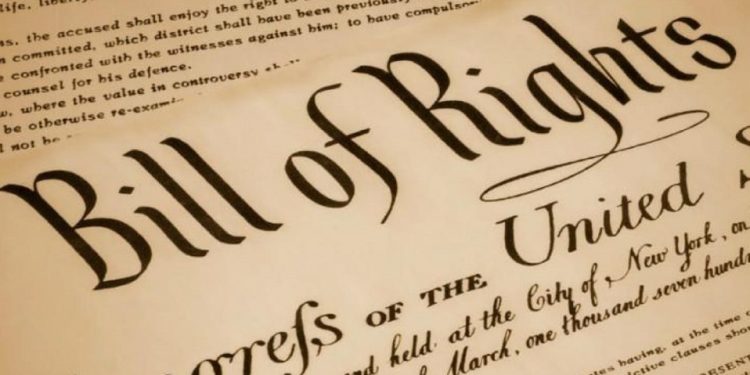
Bill of Rights Day
The history of the United States is long and storied. It started with a declaration of independence by the 13 United States of America and continued with the struggle of the U.S. against Great Britain—the strongest military of the time. But one of the most important pieces of its history is the ratification of the Bill of Rights on December 15, 1791—an act that’s now celebrated annually on December 15th.
What Is The Bill Of Rights?
Before we can even begin to discuss this holiday, we first have to discuss the document behind it: The Bill of Rights. This document is made up of the first ten amendments to the U.S. Constitution.
It specifically guarantees American citizens certain rights and freedoms and also places clear limitations on the government’s power in judicial proceedings. The ten amendments that comprise the Bill of Rights are listed below:
The First Amendment
Congress shall make no law respecting an establishment of religion or prohibiting the free exercise thereof. Congress cannot abridge freedom of speech or of the press, and it cannot interfere with the right of the people to assemble peaceably and to petition their government for a redress of grievances.
The Second Amendment
This amendment allows for the establishment of a well-regulated militia and preserves the right of the people to keep and bear arms.
The Third Amendment
Protects people from having to quarter soldiers in peace, or in time of war without the express consent of the homeowner.
The Fourth Amendment
This amendment protects against unreasonable searches and seizures; and allows for warrants to be issued only with probable cause and only under sworn oath and with a particular description of the area, things, and people to be searched.
The Fifth Amendment
With limitations, this amendment prevents people from being held for a capital crime without an indictment by a Grand Jury. It also states that no one should be deprived of life, liberty, or property without due process of law and that people can’t be subject to the same offense twice, and that no one should be compelled to be a witness against themselves.
The Sixth Amendment
This amendment states that the accused in criminal prosecutions have the right to a speedy and public trial by an impartial jury, and guarantees everyone the right to counsel.
The Seventh Amendment
This amendment establishes the right of trial by jury in suits at common law where the value in controversy exceeds twenty dollars.
The Eighth Amendment
This amendment states that excessive bail shall not be required, nor excessive fines imposed, nor cruel and unusual punishments inflicted.
The Ninth Amendment
This prevents the amendments from denying or disparaging other rights retained by the people that aren’t specifically outlined.
The Tenth Amendment
This amendment states that any powers not delegated to the United States by the Constitution, nor prohibited by it to the States, are reserved to the States respectively, or to the people.
History Of Bill Of Rights Day
This holiday was passed by a joint resolution of Congress on December 15, 1941, during the 150th anniversary of the creation of the Bill of Rights.
Celebrating Bill Of Rights Day
This day is celebrated with government buildings flying the American flag and with citizens honoring the day with appropriate prayers and ceremonies.








